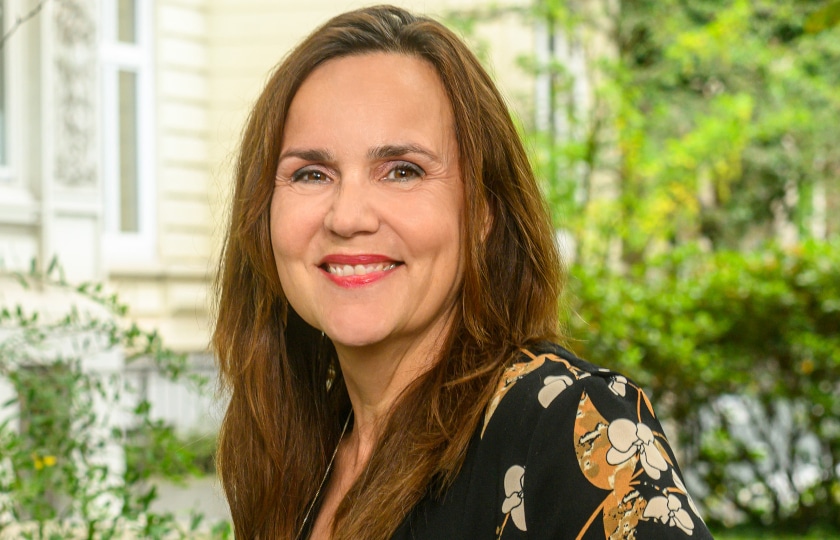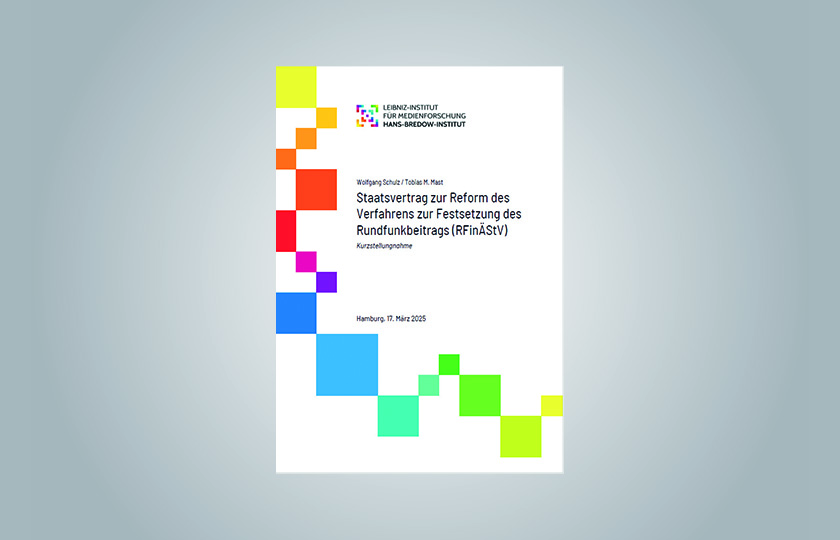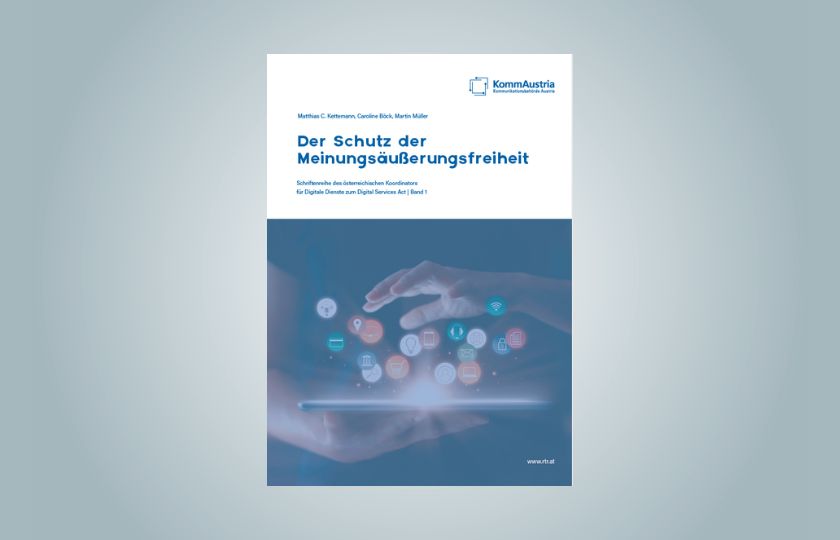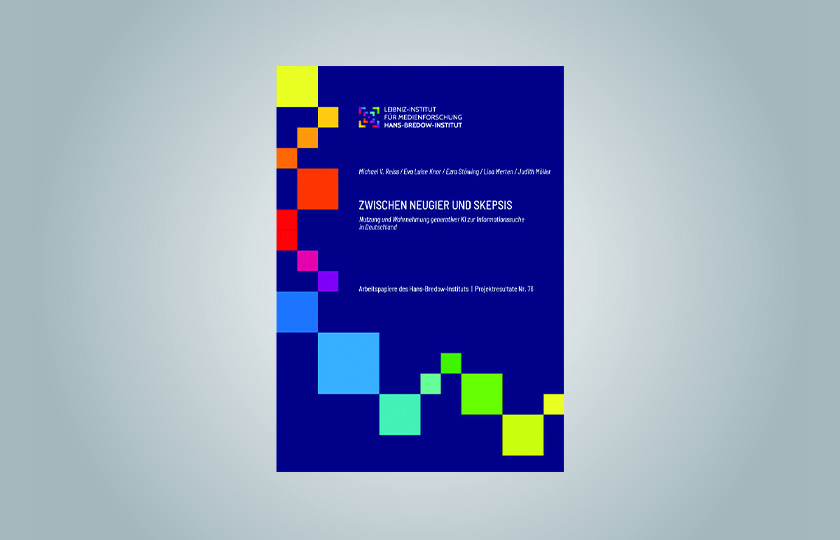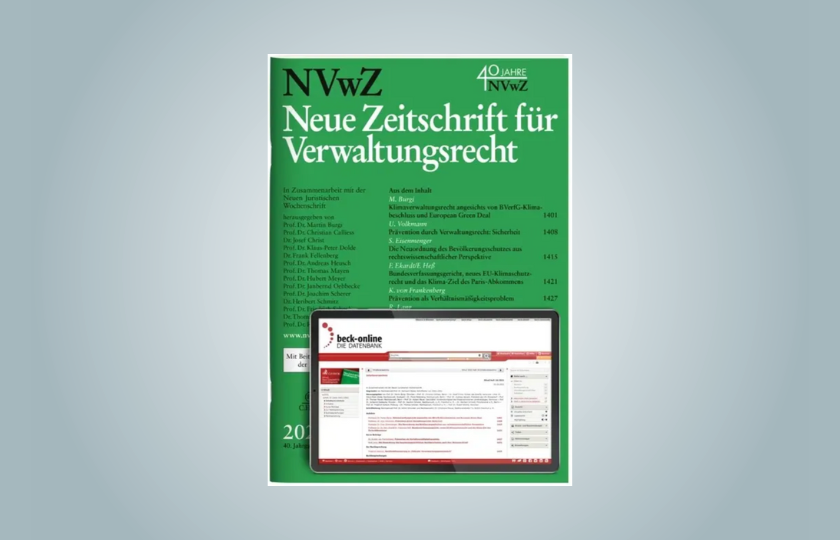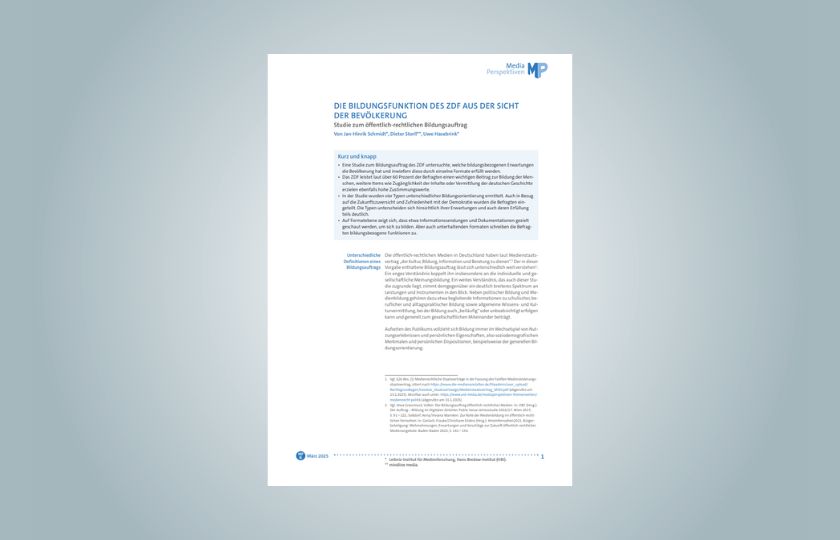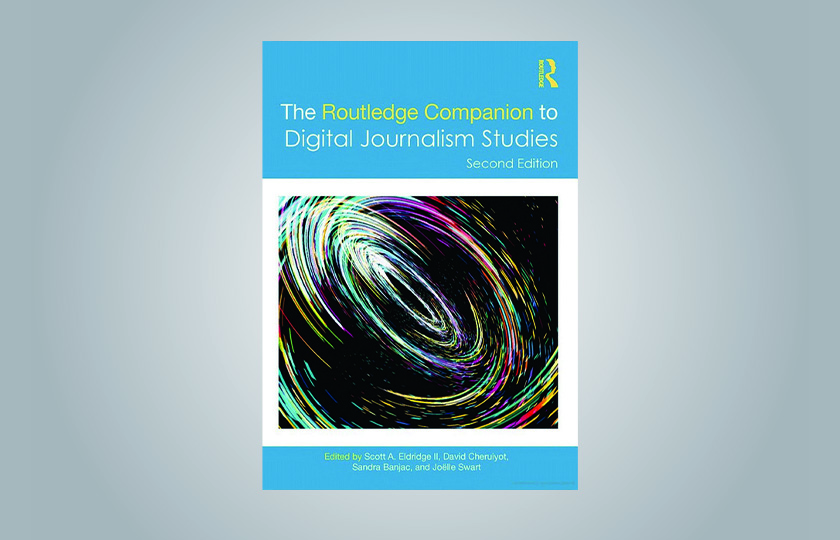As part of the world’s largest journalism study, “Worlds of Journalism”, this representative survey examines the profession of journalism and explores the stresses and strains faced by professional journalists in Germany.
The third wave of the study series Worlds of Journalism has started. The aim of the international research network is to examine the state and change of journalism and to classify the findings comparatively – both across national and cultural borders as well as over time. Research teams in more than 100 countries participate and conduct representative surveys of journalists in their countries based on a jointly developed questionnaire. This unique global cooperation in journalism research is supported by UNESCO, Reporters Without Borders and the International Federation of Journalists, among others. The study series serves as an important source of information for actors in the media, research and politics (see also www.worldsofjournalism.org).
In Germany, the Leibniz Institute for Media Research | Hans-Bredow-Institut (HBI) is responsible for the project. From September 2022 until February 2023, the opinion research institute Ipsos conducted a representative survey of full-time journalists on behalf of the HBI and in close cooperation with the project team. It goes without saying that all provisions of the EU General Data Protection Regulation were complied with.
In addition to the German country report, the results will be included in joint analyses of the DACH region in coordination with the project teams in Austria and Switzerland, as well as in the global comparison. The Ludwig-Maximilians-Universität München is responsible for the international coordination.
Journalism under Duress
The survey focuses on how journalists deal with risks and uncertainties in a media world that is characterised by constant political, economic, technological and cultural change. We focus on seven key areas: editorial autonomy, perceived influences on journalism, journalistic roles, journalistic epistemologies, professional ethics, safety of journalists and working conditions in journalism. For the first time since 2015, we also collect important key figures on the journalistic profession.
In order to enable a comparison between countries, the survey was based on a uniform methodological design. It includes a common questionnaire as well as instructions on defining the populations, sampling, conducting the data collection and collecting and processing survey data. Participants were drawn in a two-stage stratified random sample and then contacted by the survey institute.
In addition to the representative survey, various groups of so-called “peripheral actors” who operate more on the fringes of established journalism will be surveyed in Germany, Austria and Switzerland in the further course of the project in fall 2023.
Methodology
The methodological procedure for the representative survey is divided into the following steps:
Determining the basic population: Based on defined criteria, we identify all relevant editorial units in Germany and determine their editorial sizes. We distinguish between the segments of newspapers, advertising journals, magazines, news agencies, media services and suppliers, private radio, private TV, public broadcasting and online media. The information comes from databases (Zimpel, ZMG Newspaper Atlas 2021/22, AGOF, IVW, state media authorities, etc.), media websites and direct information by e-mail or telephone.
Sampling and contact research: The sample size and its distribution among the media segments are calculated from the basic population. In addition, we estimate the proportions of freelance media professionals per segment on an informed basis. This is used as the basis for drawing the sample of editorial units stratified by segments. The next step is to research journalists who work for the units drawn with the sample. For this purpose, we use databases (Zimpel) as well as publicly available lists and self-disclosures such as imprints, “about us” statements and professional networks. From these lists of persons, we randomly select the journalists who will be contacted. The contact details are taken from the above-mentioned sources.
Field time and analysis: The surveys were conducted by the opinion research institute Ipsos under the direction of the Leibniz Institute for Media Research │ Hans-Bredow-Institut (German coordination) and the Ludwig-Maximilians-Universität München (global coordination). Respondents could choose to answer by telephone or online (self-completion version). The field period started in September 2022 and lasted almost six months. The evaluation will be anonymous, i.e. not linked to names of persons or media. All personal data will be deleted after project completion.
Supplementary sample: After the representative survey has been completed, we will conduct an additional survey of people from the peripheral area of journalism in Germany, Austria and Switzerland. For this purpose, several sub-samples will first be formed, to which corresponding organizational units and persons working in them will be assigned. The survey of peripheral actors is expected to start in fall 2023.
Photo by Markus Spiske on Unsplash


